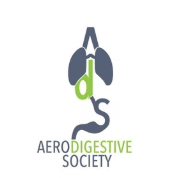Summary: Families can expect a thorough, well-organized evaluation process when entering an aerodigestive program. Care is typically delivered in stages, including an initial review, a comprehensive clinic visit with multiple specialists, diagnostic testing (often combined when possible), and a team meeting to formulate a treatment plan. Here’s an overview of the typical journey through an aerodigestive program:
- Pre-Visit Planning: After your child is referred to an aerodigestive program, you will usually be contacted by a program coordinator or nurse. This person will gather your child’s medical history, previous test results, and any records from other providers. They serve as your point of contact to answer questions and schedule evaluations. In some programs, a specialized nurse practitioner may conduct a phone interview to understand your child’s symptoms and needs before your first appointment .
- Comprehensive Clinic Visit: Your first in-person visit is often a single-day clinic where you will meet multiple specialists as a team. For example, an ENT doctor, pulmonologist, and gastroenterologist (and sometimes others like a speech therapist or nutritionist) will all see your child on the same day . Each specialist will evaluate your child from their perspective, but they communicate together about findings. This coordinated visit may last several hours as each expert spends time with your family. By the end of the day, the team will usually discuss their initial impressions with you.
- Diagnostic Testing: Based on the clinic evaluation, the team will likely recommend certain tests. One advantage of an aerodigestive program is that many tests can be scheduled in a coordinated manner. For instance, if your child needs an airway examination and a GI endoscopy, the program might arrange a combined procedure (often called a “triple endoscopy” when ENT, pulmonary, and GI evaluations are done together) under one anesthesia . Other tests could include swallow studies (to see how your child swallows liquids and foods), imaging studies (like an X-ray or MRI of the airway or digestive tract), sleep studies if there are sleep-breathing issues, or lung function tests. The program will try to group these tests to minimize inconvenience. Some evaluations can even be done while you are in town for the initial visit (for example, a next-day procedure if you’ve traveled from out of town).
- Team Discussion and Treatment Plan: After all necessary evaluations are completed (which might be the same day as the clinic visit or over a short period of time), the aerodigestive team meets together to discuss the findings. They review test results and each specialist’s assessment. Together, they come to a consensus on your child’s diagnosis or underlying issues and develop a comprehensive treatment plan . You will then have a meeting (or a call) where the team explains the results and recommendations in detail. They will outline the next steps, which could include medical treatments, surgeries, or therapies, and answer any questions you have.
- Follow-Up Care: Aerodigestive care doesn’t end with the initial evaluation. The team will arrange follow-up appointments to monitor your child’s progress. This may include check-ups with the entire team or with individual specialists as needed. They may also repeat certain tests down the line to see how interventions are working (for example, repeating a swallow study after a period of feeding therapy). The frequency and format of follow-up will depend on your child’s condition and needs – some families return for periodic multidisciplinary clinics, while others might have local follow-ups with coordination from the aerodigestive team.
Throughout this process, communication is key. You will have a coordinator or lead contact in the team who can help navigate scheduling and ensure you understand each step. Families can expect a thorough explanation at each stage – before a test or procedure (what it’s for and how to prepare), and after (what was found and what it means). By the end of the initial aerodigestive evaluation, you should have a clear understanding of your child’s condition and a roadmap for treatment.
Next: The Aerodigestive Team
